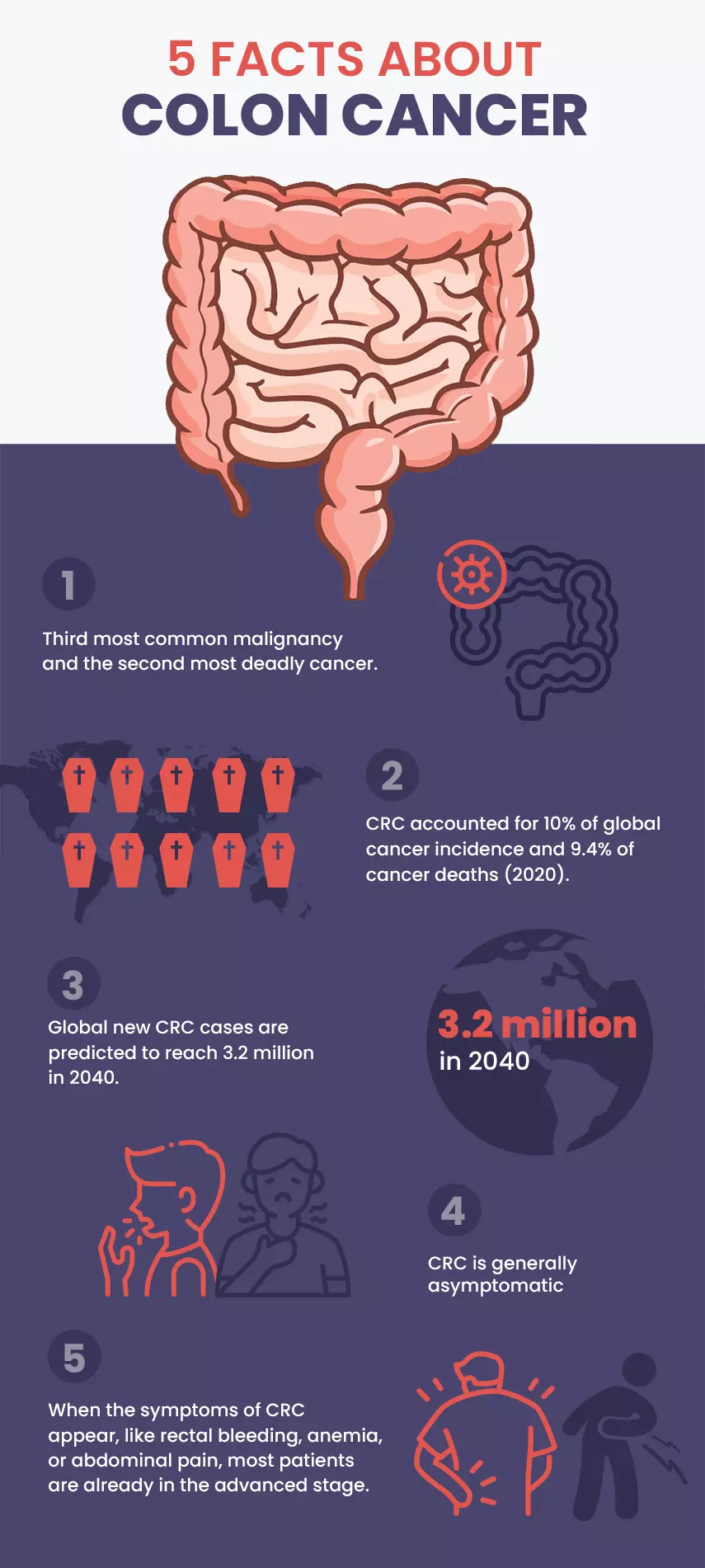Overview
The condition of colorectal cancer occurs when cells in the colon or rectum grow out of control. Many people know this condition as colon cancer. The term “colon” also refers to the large intestine or “bowel.” The colon is joined to the anus via the rectum. Polyps, or abnormal growths, can develop in the colon or rectum. Certain polyps may develop into cancer with time. Polyps can be found via screening tests and removed lest they turn into cancer. Colorectal cancer screening also aids in the early detection of the disease, when treatment is most effective.
History of World Colorectal Cancer (CRC) Month
In February 2000, President Bill Clinton of the United States of America (USA) proclamate a March as National Colorectal Cancer Awareness Month.It has evolved into a representative for colorectal cancer patients, survivors, caregivers, and advocates, with patients, survivors, caregivers, and advocates for the cause dressing up in blue, keeping fundraising and education events, speaking to friends and family regarding screening.
Symptoms and Causes of Colorectal Cancer (CRC)
A persistent change in your bowel habits, such as diarrhoea or constipation, or a change in the consistency of your stool, are signs and symptoms of colon cancer. Rectal bleeding or blood in the stool are both symptoms of rectal bleeding. Consistent abdominal aches and pains, such as cramps, flatulence, or pain Feeling as if your bowels aren’t totally empty, Weakness or exhaustion, Weight loss that hasn’t been explained. Many people with colon cancer in its early stages indicate no clinical symptoms. Symptoms will likely vary depending on the size and location of the cancer in your large intestine.
Reach out to the Doctor for the Best Treatment Options:
The colon and rectal surgeon may offer testing to evaluate the extent (stage) of your colon cancer in case you have been diagnosed with it. With help of staging, best treatment line can be determined for you by your specialist.
Local treatments: Surgery for Colon Cancer, Surgery for Rectal Cancer, Ablation and Embolization for Colorectal Cancer, and Radiation Therapy for Colorectal Cancer
Systemic treatments: Chemotherapy for Colorectal Cancer, Targeted Therapy for Colorectal Cancer, and Immunotherapy for Colorectal Cancer.
One must reach out to an online oncologist consultation with an experienced colon cancer doctor at the earliest for the best treatment options.
Five Facts About Colon Cancer

Preventive Measures:
There is no foolproof technique to avoid colorectal cancer. However, there are certain things you can do to reduce your risk, such as reducing the risk factors that you have control over. Screening for colorectal cancer: The procedure of looking for cancer or pre-cancer in people who have no signs of the disease is known as screening. It normally takes 10 to 15 years for the initial aberrant cells to grow into polyps, and then for them to develop into colorectal cancer. The majority of polyps may be detected and removed with frequent screening before they evolve into cancer.
Colorectal cancer can also be detected early when it is tiny and easier to cure. By controlling your diet and physical exercise, you may be able to reduce your risk of colorectal cancer. Both men and women are at an increased risk of colorectal cancer if they are overweight or obese, but the association appears to be higher in men. Your risk can be decreased by maintaining a healthy weight. If you are more active, you are less likely to develop polyps and colorectal cancer.
Regular, moderate-intensity exercise can aid in lowering the risk. Keeping your sitting and lying down time to a minimum may also assist lower your risk. Increasing your physical activity level and intensity may help lower your risk. Reduce your risk by eating more vegetables, fruits, and whole grains and avoiding red and processed meats. It’s possible that abstaining from alcohol will lower your risk. Quitting smoking may reduce your chance of colorectal cancer as well as a variety of other cancers.
Reference Links:
Cancer of the colon or rectum, which is found at the lower end of the digestive tract. Early in the course of the illness, non-cancerous polyps may develop. Although often asymptomatic, they can be discovered by screening. Doctors, therefore, urge testing for anyone who is at significant risk or is over 50. The size, location, and spread of the tumor influence how colorectal cancer is treated. Surgery to remove the tumor, chemotherapy, and radiation therapy are all common treatment choices.
The clinical signs and symptoms of Colorectal cancer may vary depending on the size and location of the cancer. Changes in bowel patterns, changes in stool consistency, blood in the stool, and stomach discomfort are all typical signs.
When first-degree relatives (parents, brothers, sisters, children) or several other family members (grandparents, aunts, uncles, nieces, nephews, grandkids, cousins) have had colorectal cancer, it does mean that colorectal cancer runs in the family. This is particularly true if a member of the family is diagnosed with colorectal cancer prior to reaching the age of 60. A person’s risk of having colorectal cancer is approximately doubled if they have a family history of the disease. When other close relatives have had colorectal cancer or in case a first-degree relative was identified at a relatively young age, the risk goes up even more. Genetic testing is the only way to determine in case you have a genetic mutation, and genetic counselors are educated to discuss the risks and advantages of genetic testing.
Inherited diseases that are uncommon: Colorectal cancer, and many other forms of cancer, is more common in families with some unusual genetic disorders.


